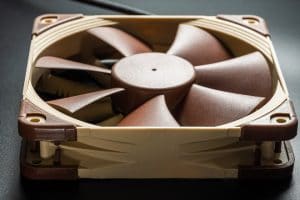 When it comes to advancing technologies, overcoming challenges is usually the main goal. However, when it comes to thermal management solutions, however, many of the challenges that companies face have traditionally been far from easy to overcome. That’s largely because many of those challenges stem from the inherent methods used by traditional thermal management solutions, such as air conditioning and air compression. Fortunately, more modern solutions provide much simpler methods of electrical cooling that make it much easier for companies to streamline their thermal management and overcome the common challenges that companies face.
When it comes to advancing technologies, overcoming challenges is usually the main goal. However, when it comes to thermal management solutions, however, many of the challenges that companies face have traditionally been far from easy to overcome. That’s largely because many of those challenges stem from the inherent methods used by traditional thermal management solutions, such as air conditioning and air compression. Fortunately, more modern solutions provide much simpler methods of electrical cooling that make it much easier for companies to streamline their thermal management and overcome the common challenges that companies face.
Maintaining optimal electrical cooling long-term
The more companies upgrade their operations with more advanced technologies, the more important roles electrical thermal management takes on. This means electrical cooling solutions must be able to perform longer and more reliably than ever, and at minimal costs to avoid overburdening companies’ budgets. With more traditional electrical cooling systems, this becomes challenging and expensive due to their high-maintenance needs. The longer they run, the more energy companies need to invest in and the more maintenance the systems require. However, because more modern systems like heat exchangers utilize simpler heat transfer methods, which don’t require large amounts of energy or frequent maintenance, they’re able to continue running reliably, and at minimal cost to companies.
Reducing energy needs for thermal management
The reduced amount of energy that heat exchangers require to run continuously is a significant factor in their ability to operate at optimal capacities longer. It’s also an important benefit to companies that implement the more streamlined electrical cooling solutions. Energy consumption has become an increasingly larger burden for companies over the years, especially as technology continues to take over more of their operations. For heat exchangers, the process of preventing electrical overheating is accomplished with the use of an eco-friendly cooling fluid and natural processes that allow the fluid to efficiently absorb and transfer waste heat.
Meeting increased demands of modern technologies
Companies that first utilize heat exchangers often experience the benefits over traditional solutions nearly immediately. However, as they invest in more advanced technologies in other areas of operations, the ability of modern heat exchangers to keep up with the increased thermal management demands makes them even more beneficial. For example, heat exchangers can be customized and specialized to meet a wide range of thermal management needs beyond electrical cooling, such as rapidly removing heat from molds in the plastic molding industry.
For more information about how heat transfer techniques can overcome thermal management challenges, call Noren Thermal Solutions in Taylor, TX, at 866-936-6736.







